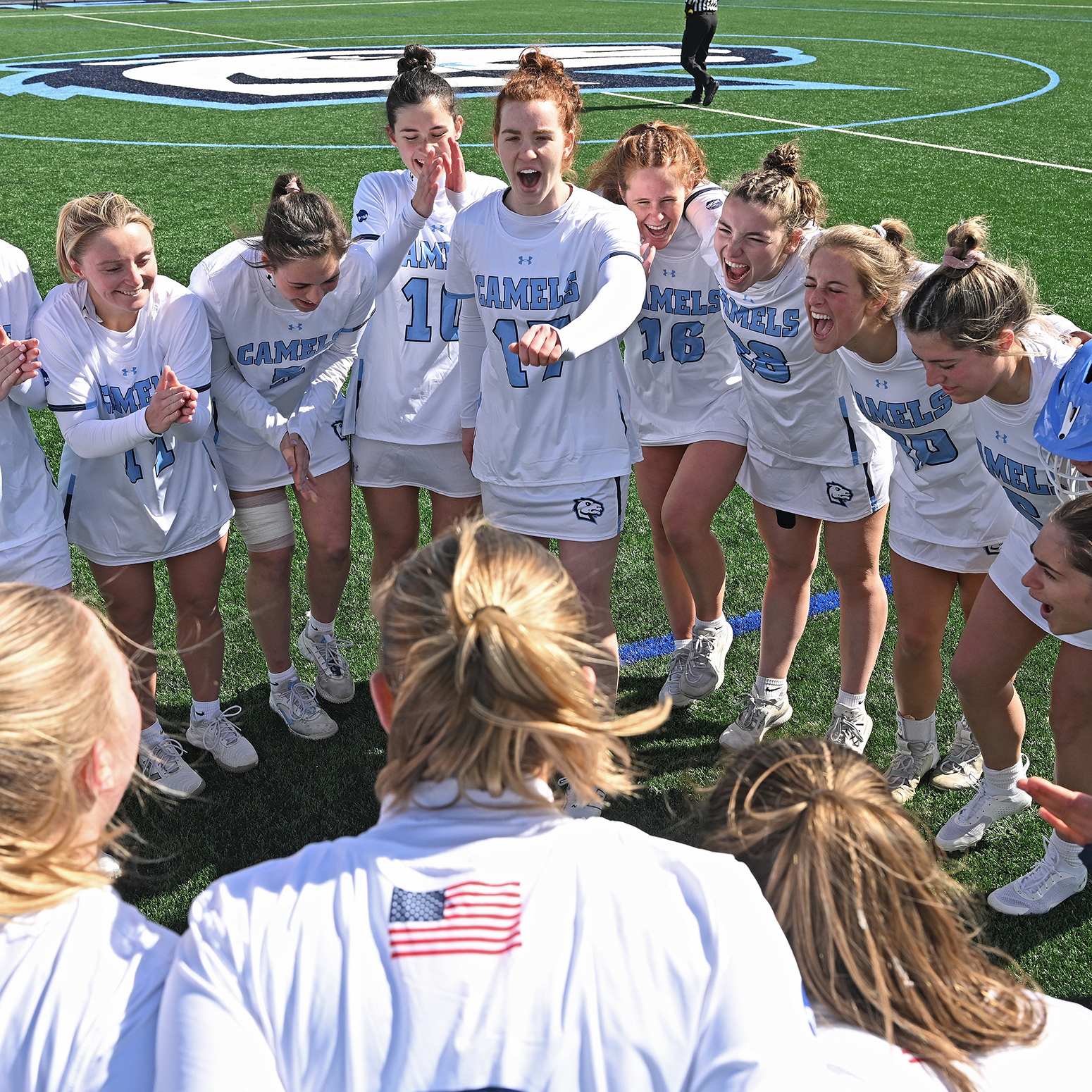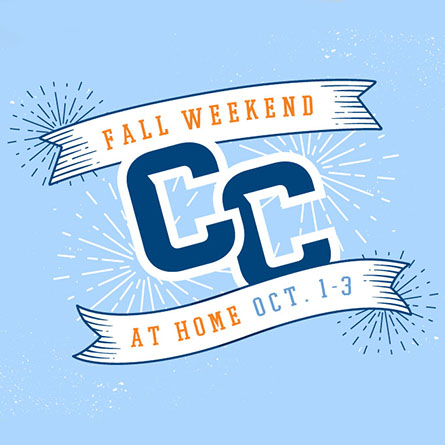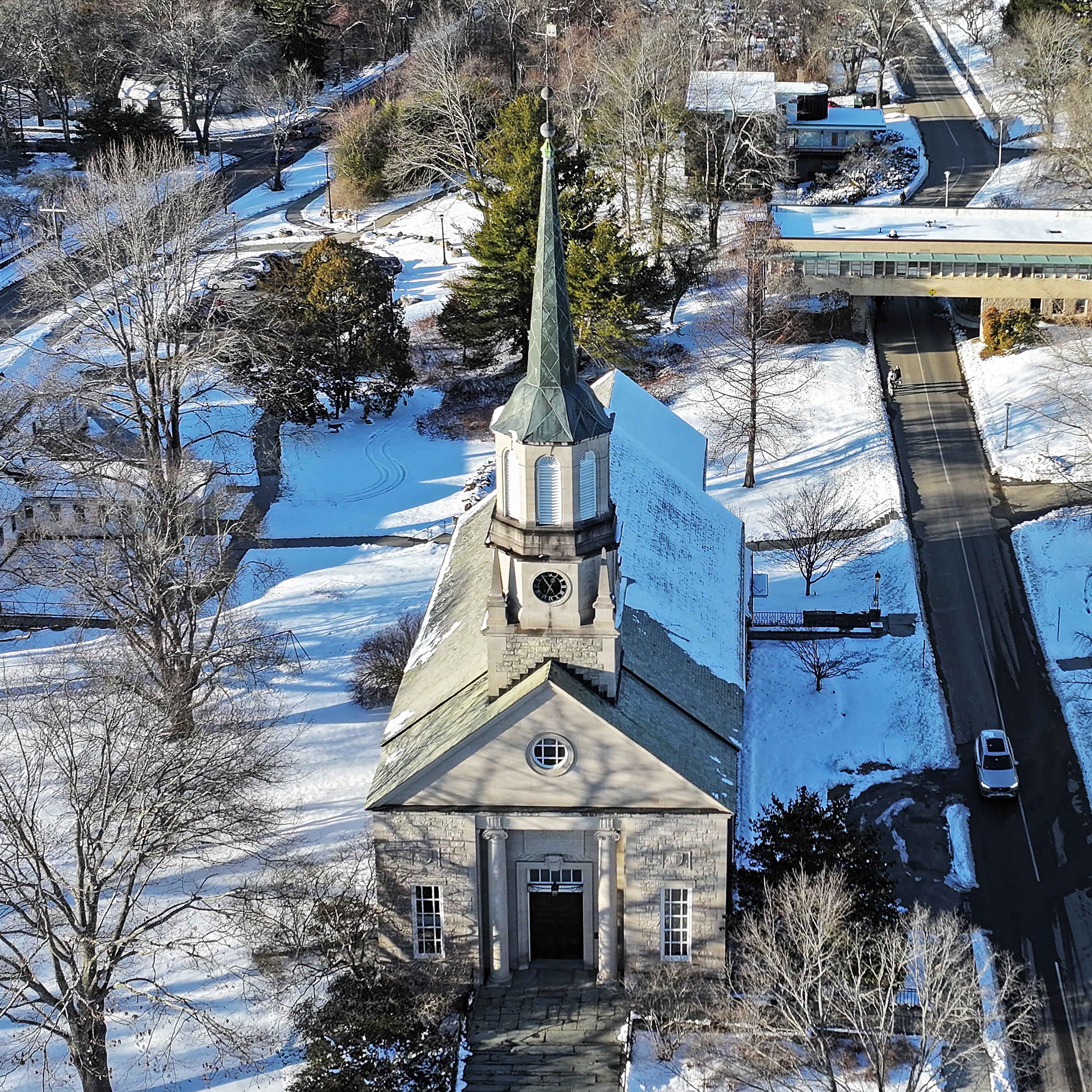
Fall Weekend
This year’s Fall Weekend was both familiar and entirely different.
In a reflection of the ways the world has adapted to the COVID-era, an annual tradition typically centered on bringing alumni and parents to campus for a weekend of celebratory, educational and athletic events required some reimagining this year. The result was a successful series of celebrations, virtual panel discussions, an uplifting State of the College address and a Convocation ceremony.
The virtual Convocation, which kicked off the weekend on Thursday evening, celebrated the start of Conn’s 106th academic year and served as an official welcome to the Class of 2024, along with other new students, faculty and staff.
“This is a rare coming together of the whole Conn community across time and space,” Connecticut College President Katherine Bergeron said in remarks opening the Convocation. "The pandemic has so far prevented us from doing this in all the ordinary ways this year, and yet if there ever were a time when we needed to be called together, it is now,” she added.
Joining the College this fall are 436 students from the class of 2024, 13 transfer students, nine faculty members and three new staff members.
This year’s Convocation keynote address was delivered by professor of human development Michelle Dunlap, who spoke of racial justice through an analysis of the poem, The Rose that Grew from Concrete, by Tupac Shakur.
"Imagine the amount of work to push through this crack and the danger of being trampled on in the process by people who may not even grasp one's presence, nor potential, and most importantly, one's right to be there," Dunlap said in reference to the poem, going on to argue that a liberal arts education should strive to answer difficult questions relating to racial and social justice.
Due to the reach and accessibility of virtual events, professor-led discussions during the three-day weekend saw more than triple the usual attendance they have drawn during previous, in-person Fall Weekends, and were designed this year to focus on topics largely relevant to the pandemic and upcoming national elections, as well as a panel discussion with Persephone Hall, Hale Center Director of the Hale Center for Career Development.
Marc Zimmer, who serves as Jean C. Tempel ’65 professor of chemistry, spoke about his new book, The State of Science, and touched on issues ranging from COVID to climate change. In the midst of the closing weeks of the presidential election, Assistant Professor of Government Mara Suttmann-Lea discussed the challenges of voting during a pandemic and the racial and socio-economic disparities within the electoral system that have been exacerbated by COVID.
Associate Professor of Economics Mónika López-Anuarbe, who specializes in health and inequality, also participated in a Q&A about how and why the pandemic has had a disproportionate impact on communities of color.
The weekend also included a virtual a capella showcase, as well as a panel discussion with members of the Connecticut College Alumni of Color (CCAC), who joined current students, staff, faculty, alumni, and families for an inclusive webinar focused on the experiences of people of color.
"We wanted to be very intentional about the events we put on for alums and parents," said Kim Verstandig, vice president for college advancement, when asked about the professor Q&A’s. "We wanted to make them relevant."
On Saturday, Bergeron delivered the State of the College address by video from Tempel Green in which she discussed the College’s record and ongoing efforts to combat the pandemic on campus and keep students, faculty and staff healthy. She also offered news and updates on important initiatives such as the Agnes Gund ’60 Dialogue Project, which continues its phased rollout with expanded programming that has taken on an even greater sense of urgency as the country experiences the greatest social and racial unrest in a generation. And she announced that Conn’s close partnership with the Posse Foundation, an organization that recruits and supports students from underrepresented communities, will now extend to students from New York City.
“In our entire 100-year history we have never known a year like this one,” Bergeron said, acknowledging that the College had survived a national pandemic in 1918, economic calamity in the 1930’s and racial unrest in the 1960’s, but pointing out that in 2020, we find ourselves facing the challenges of all three at once.
“Yes, it has been challenging,” Bergeron said. “But through it all a basic truth has emerged; one that illuminates both our history and our current moment, and it can be summed up in three words: Camels carry on.”

